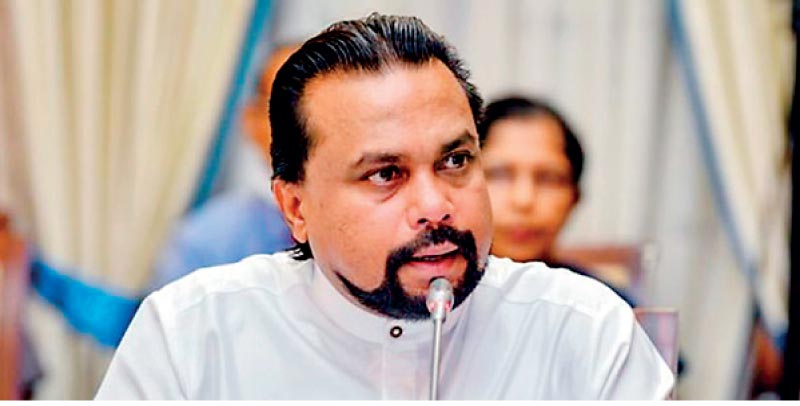Saturday Feb 21, 2026
Saturday Feb 21, 2026
Thursday, 21 October 2021 04:41 - - {{hitsCtrl.values.hits}}

Industries Minister Wimal Weerawansa
Industries Minister Wimal Weerawansa has requested the Central Bank (CB) to introduce strategies to reduce the inequalities faced by the Micro, Small and Medium Enterprises (MSMEs), which are facing major setbacks post-pandemic.
In a letter to Central Bank Governor Nivard Cabraal, the Minister had underscored that the instability of the industrial sector due to the COVID-19 pandemic has enabled the financial institutions to progress by making ‘unlimited profits’.
In this context, Weerawansa proposed the Central Bank extend the financial moratoriums by the commercial banks and reschedule the debt of all industrialists in a more relaxed manner.
A recent survey by the Industrial Development Board (IDB) has revealed that the COVID pandemic has caused a major dip in the MSME manufacturing sector. As a result, the value-added industry contribution to the Gross Domestic Product (GDP) is likely to decline. This was due to the disruptions caused by the pandemic and especially due to the inability to supply inputs (machinery and raw materials) for the MSME manufacturing industries and the drop in capacity utilisation in those industries due to declining demand for finished goods. This has resulted in the production going into liquidation.
“If the current macroeconomic barriers to develop the industrial sector are not brought under control with immediate effect, the unemployment rate could worsen and inequality in income could increase due to declining industrial contribution to GDP. Therefore, as the regulatory authority in the financial sector, I urge you to expedite the introduction of quality debt control provisions to manage the direction of cash flow,” Weerawansa said.
Although the banking sector has provided loans to industries in 2020/2021, the Minister noted that the majority of those were extended to large-scale businesses and the buying and selling business (trade).
“The bank lending to MSMEs in Asian and SAARC countries is over 50%. However, in Sri Lanka, it is less than 15% with high interest rates,” he claimed.
Citing five leading commercial banks in the country, Weerawansa said that despite the overall economic and manufacturing downturn during 2020/2021 financial year, the profit margins of these banks have increased.
He stressed that commercial banks earn income from lenders’ deposits, gold mortgage advances, investment in bonds, overdraft facilities and other means, and generally derive a large percentage of this income from interest earned on loans to industry.
“This is in stark contrast to the criteria proposed to be implemented in the industrial sector of the ‘Vistas of Prosperity and Splendour’ policy framework. I would like to point out to you that if this imbalance in the economy is not brought under control, it will be a serious challenge for the Government to achieve and sustain the rapid economic development that it hoped for,” Weerawansa said.
The Minister also pointed out that the Central Bank had implemented such provisions for the development of MSMEs in the early 1990s.